Photo: Alysse Gafkjen

Julien Baker
news
Big Questions And 'Little Oblivions': Julien Baker On How Her Latest Album Navigates Healing & Forgiveness
Tennesseean indie folk artist Julien Baker expands her palette for songs of introspection and recovery on 'Little Oblivions'
There’s a fluidity to the way Julien Baker hops between discussing the "hopeless zones" of life that influenced her new record and the joy she gets out of making dinner for her roommates. This rapid shifting between the ecstatic and the somber should be familiar to many of us. In a year with too many calamities and surrealities to detail, the experience of swiftly bouncing between cherishing small joys and dissecting previously unknown darkness has become commonplace.
On her latest album, Little Oblivions—due February 26th via Matador—Baker explores her list of pains, staring down her tornado of experiences with stunning, present clarity.
The 25-year-old Tennessean’s catalog packs an immense emotional weight, her lithe vocals and vivid songwriting ensuring the songs bore ever deeper into the listener’s heart. A voracious reader of theology, philosophy and sociology, Baker’s lyrics find acute precision even in the uncertain examination of existence’s biggest questions.
"Like so many people raised in the Western world, specifically evangelical Americans, I have such an issue with guilt and shame," she tells GRAMMY.com. "But you can't go back and excuse or undo the hurt that has happened."
Little Oblivions captures the potency and immediacy of Baker’s debut, Sprained Ankle, combined with the widened scope of Boygenius, her collaborative project with Phoebe Bridgers and Lucy Dacus. It’s telling, too, that the record is inspired more by gray areas than revelations—including her ongoing journey with sobriety and addiction, dealing with her religious upbringing and current spiritual questing, and developing a relationship with the concepts of forgiveness and healing.
Little Oblivions doesn’t offer grand answers yet retains a certain strength of statement, both in Baker’s poetics and the increasingly welcoming structures. As evidenced by the steamy "Heatwave," she weaves a striking and painful image of Orion’s Belt as a noose. On "Bloodshot," her lyrics dig deeper into the vein than ever before: "Oh, there is no glory in love/ Only the gore of our hearts/ Oh, let it come for my throat/ Take me and tear me apart."
Baker spoke with GRAMMY.com about taking time away from music to go back to college, the value of setting boundaries, the danger of conflating identity and career, and how Little Oblivions grows from its predecessor, Turn Out the Lights.
This interview has been edited and condensed for clarity.
<style>.embed-container { position: relative; padding-bottom: 56.25%; height: 0; overflow: hidden; max-width: 100%; } .embed-container iframe, .embed-container object, .embed-container embed { position: absolute; top: 0; left: 0; width: 100%; height: 100%; }</style><div class='embed-container'><iframe src='https://www.youtube.com/embed//bWAOkg2i6_g' frameborder='0' allowfullscreen></iframe></div>
Having a new album and not being able to tour must be so unbelievably strange. Have you been able to use this time to rest a little? How do you navigate your free time?
I haven’t thought of that before. I took some time off in 2019 because I had just been touring since 2015. I went back to school, and then I got the band back together to rehearse. We were all stoked for this summer tour we were going to do, and then an even longer hold was placed on my life.
At first, it was kind of maddening. It's always different when you make the decision, but it’s very different when your ability to work is no longer possible. My micro life has been pretty stable. I just got done working on a score. I work from home. I have a little studio up in the attic.
But as a function of everything that happened this year, I’ve learned how to better articulate and respect boundaries.
That’s been a difficult lesson for so many of us. How does that lesson function alongside looking toward the future?
Before I went back to school, I was originally supposed to go to South America to tour and make a record in London and then go to Australia. I was saying yes to all these things because the last time I took a significant amount of time off, I didn't know what to do with it! When you take a person who is used to being stable at a certain momentum and then slow them down, everything gets off balance.
But in conversations with my friends and people that I tour with, it was clear it wasn’t going to work out anymore. I was super burnt out and not being healthy. So I took some time off and went back to school. At that time, I realized that I have a deep love for the artistic ideal of music, but if music isn't the thing that I do to make money, it's going to be fine, and it's not going to mean that my life is less important or less fulfilling. I just dialed back the arbitrary anxieties that I had constructed and put on myself, like who I needed to be and what service I needed to provide in my job.
It's been freeing. It's been challenging but ultimately super healthy for me—which is a privileged thing to say because it's been an economic disaster for some people. It's been fatal for people.
But it's good to acknowledge the little things that you've overcome as well. There's a sense of chaos when you're constantly moving around. You don't have time for the little moments, like waiting for a kettle to boil and seeing some crumbs on your counter. When you stop moving suddenly, you're like, "Okay, I notice this, but then what am I without it?"
Yes! One thing that I've talked to with a couple of my friends is how our relationship to constant productivity has been reexamined. For a while, it had swung the opposite way for me where I kept thinking, "I have no excuse not to be doing something productive all the time because I work from home now." But people remembered that we still have an emotional bandwidth of how much we can engage with.
All the information that we can absorb in one day is overwhelming, and it comes at us from 500 channels. My expectation for myself, the negative self-talk that I would have about not being productive, has helped me set more realistic expectations for everyone else and to realize the anxiety that I take out on others.
There is a lot of joy in figuring those things out and knowing that tomorrow it can be completely different. It isn't about lessening expectations for oneself. It's about shifting your goalposts, knowing that you will achieve something at some point if you put your mind to it and not putting that pressure on yourself.
Oh gosh, exactly. Not even expectations, but... Okay, yeah, I'm going to talk about it. I was just thinking, "Do I talk about capitalism?" It's only been like 10 minutes!
How can we not?
How can we not? We live in this consumer-product relationship-based society, and even though I know this is BS, it's hard enough for me to feel like this is my job because there are people digging ditches.
But it has also shifted how I quantify what my job and my life are worth. As you said, it's shifting goalposts. What metrics do I want to use on whether I'm doing the right thing? It's incredibly meaningful for me to be able to be like, "You know what? I'm so tired of looking at these emails about magazine articles and stuff that may or may not happen.
They're a mechanism of me being in the consumerist music industry," and just shut my laptop and go make my roommates a big yummy dinner. I've been cooking so much in quarantine. The other day I made curry from leaves. My ass was up there at the international market, like, "Let's see how this goes. I'm going to try."
<style>.embed-container { position: relative; padding-bottom: 56.25%; height: 0; overflow: hidden; max-width: 100%; } .embed-container iframe, .embed-container object, .embed-container embed { position: absolute; top: 0; left: 0; width: 100%; height: 100%; }</style><div class='embed-container'><iframe src='https://www.youtube.com/embed/6pGBIAiJPF4' frameborder='0' allowfullscreen></iframe></div>
You're giving yourself time to enjoy those things. And it's very problematic when those things don't bleed into the things you do for a living. When you get caught up in this concept of, "I play this music with this guitar, this is me," all the other things don't matter.
I fixated so much on my identity. I tried to make my identity and my career the same. Sometimes, taking every opportunity comes at the cost of not understanding when things are special or doing things performatively.
And it was all predicated in the back of my mind on this weird looming feeling, like, "Or what? If you don't play the show, then people aren't going to care about your music. If you don't do this, then you're not going to make money." And then still it comes back around to this weird thing where I'm fixated on my career security, when I should know better than anyone how imaginary career security is.
It's been a trip, but there can be time just to sit and look at your dog and be like, "You're a doofus. You're not worried."
There's that duality between concern and freedom on songs like "Hardline," this thin line between poison and medicine where the same thing can be redemptive and also destroy you. That concept seems to be so important to this moment in time.
For all of my understanding of the need for balance, it's something that you can regurgitate as a theory but not understand for so long. I could be like, "Sexuality is on a spectrum, everything's on a spectrum, but the thing that isn't on a spectrum is good and bad or right and wrong."
I'm not saying, "Do whatever! There's no right and wrong," but it ends up that when you reevaluate the things that you felt so strongly about, and they end up not being the most important thing, it's this wild loss. It's a very heavy loss to think, "Oh, the parameters that governed my life before are gone, and I don't know what to do without them. I don't even know if I was happy or if I was just doing what I was doing."
<style>.embed-container { position: relative; padding-bottom: 56.25%; height: 0; overflow: hidden; max-width: 100%; } .embed-container iframe, .embed-container object, .embed-container embed { position: absolute; top: 0; left: 0; width: 100%; height: 100%; }</style><div class='embed-container'><iframe src='https://www.youtube.com/embed/ZaEAbleWSjs' frameborder='0' allowfullscreen></iframe></div>
For that reason, the idea of hope and redemption amid darkness is complex on the album. How do you feel sharing that honest yet complicated relationship to hope?
Yeah, which is wild since the events on the record take place in some pretty hopeless zones of my life. On Turn Out the Lights, I was looking back on tragic or traumatic events but that were four and five years away from me, where I had distance and had processed.
I had this binary attitude about that bad person I was versus the better me I've become. And when I circled back around to see that I still had unhealthy coping mechanisms and they were just manifesting in new ways that were equally as bad, it shocked me. I had no idea what forgiveness or healing was about because receiving forgiveness involves a lot of pain.
It's a very humbling experience that gave me a very different idea about what love entails and what healing feels like. It's not always the alleviation of negative feelings. Sometimes there's a whole bunch of appropriate guilt. It's a new mental territory for me to be in that is better, hopefully.
I expected my first record, Sprained Ankle, to flop. In the deal that we signed with the smaller label that put it out before Matador, I was like, "I'm not gonna sign this deal unless my band is also signed," because I thought it would be seen as a solo album from the girl that was in this band. But it did well, and I wasn't prepared for it. And then I had this crisis four years ago when Trump got elected, and I was supposed to be taking time off to write a record.
I had this call with my manager and my booking agent, like, "I gotta be out on the road interacting with people. I've got to do something about this with the power of my art!" [Laughs] I wanted to craft this record where I was feeling a whole bunch of super dark things but had begun to feel like healing is possible, and I could get to a better place.
I felt this need to represent and reiterate that to listeners. But at the same time, it does feel good sometimes not to have to put a happy or hopeful caveat on the end of a song.
From a writing perspective, that must be freeing—which is itself a sense of forgiveness.
Yeah, exactly. I'm an anxious person. I've always struggled with anxiety. I have so many thoughts all day long where I'm like, "Did that person take this this way?" It got to the point where I was like, "I can't think about this this much anymore because it's a problem, and it's giving me a week-long panic attack." So I just do a mental exercise where I follow whatever new thing I'm catastrophizing in my head out to its most logical end. Like, "Do I think they're going to hate me forever, or do I think they're going to think something was a little rude."
Before, I just couldn't handle other people's emotions. But, weirdly, that's not giving them space to feel angry or annoyed or stressed. And so accepting how another person is feeling and then being like, "Can I live with this? Can I make a mental note not to do this again? Or can I make a mental note to do something more considerate and learn from this? Because obsessing over it right now is only going to lead me to panic and over-apologize and infuriate the person even more."
<style>.embed-container { position: relative; padding-bottom: 56.25%; height: 0; overflow: hidden; max-width: 100%; } .embed-container iframe, .embed-container object, .embed-container embed { position: absolute; top: 0; left: 0; width: 100%; height: 100%; }</style><div class='embed-container'><iframe src='https://www.youtube.com/embed/Lccb28Inryk' frameborder='0' allowfullscreen></iframe></div>
I want to preface this by saying that I'm not necessarily asking about specific experiences of addiction and sobriety but rather about the process of sharing. I've been sober for eight years, and discussing my experience has become second nature to the point that doing so almost steps me out of it. It almost takes on its own life and then depends on the listener to respond to it. How does that relate to how you share this experience via songwriting?
When I was writing Turn Out the Lights, it was having been multiple years sober and not having recent experience with those things. And it's super humbling to return to a place… it almost feels like some of this record is made up of songs that were cringing not out of spite towards who's listening to them or who they're about, but more just at myself. Like, "Can I get down to the ugliest thing that I can admit about myself? And then can I have that be the starting place?"
It's this weird masochistic thing. I want to be a good person really bad, but I've got so much anxiety about if I'm doing it right. And then I was like, "Well, what if I just admit that I'm not doing it right?" And it's just the adrenaline rush of when you cancel plans. Like, "I've just confirmed to my friends yet again that I'm a flake. I can have them not expect anything from me."
That’s what happened here. I was like, "Well, what if I'm still struggling with substance abuse? Or what if I radically change what I believe about God?" I thought I was doing so much to sculpt my personality and my identity. When I was the worst me possible, it was super freeing because all of my friends were still there being annoyed.
But the reason they were friends with me in the first place was never the things I cultivated about myself or that I tried to live up to crazy expectations. That made me feel like I could trust my friends to be my friends. I can trust people not to hold my mistakes over my head. I had had very specific and stringent ideals about politics, and about being straight-edge, and about how I would let my faith out in the world and what that meant.
And really, what I needed was problem-solving skills, patience and communication. It wasn't like, "I need just to read all of these anarchist zines, and then I'll know the right ideology to have." I just need to be a kinder, more stable person instead of fixating on some random thing.
Palehound Is Learning To Love Herself
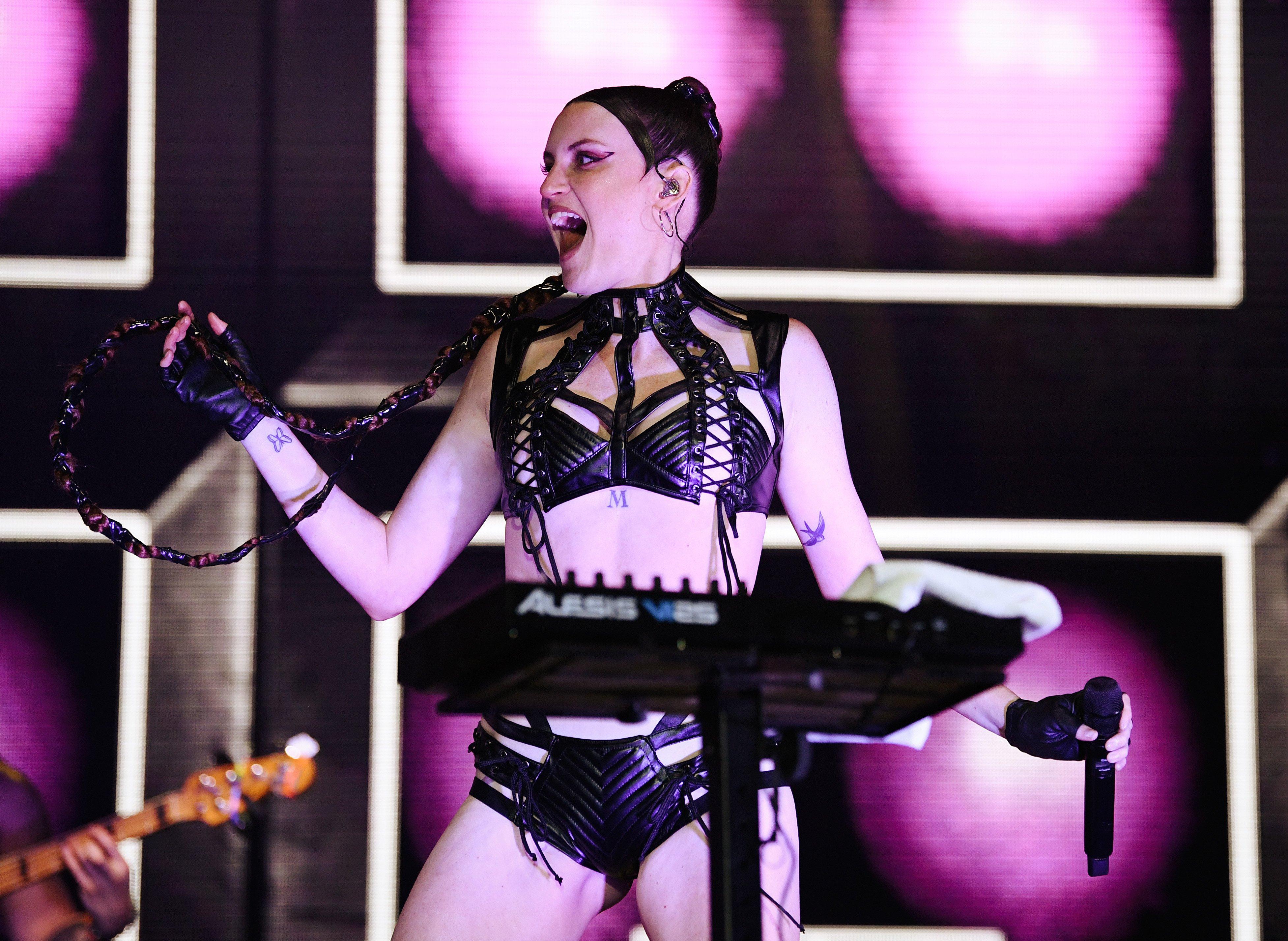
Photo: Chelsea Guglielmino
list
5 LGBTQIA+ Record Labels To Check Out: Get Better Records, So Fierce! And Others
During Pride Month and beyond, LGBTQIA+ owned and operated record labels are diligently working to provide queer artists a platform while providing more visibility for their communities.
Music is often a unifier — something that ties us together, allowing us to bond over our shared experiences. This is especially true among LGBTQIA+ communities. Whether you’re hearing MUNA’s pop songs crackle over speakers in a record store or finding ethereal deep-cut Ethel Cain demos on SoundCloud playlists, the queer community find an inevitable connection in the artists they seek out.
For decades, queer artists have cultivated hidden scenes in rave, techno and dance music. Today, a new generation of LGBTQIA+ artists are shaping contemporary pop, from Reneé Rapp and Towa Bird, to Chappell Roan and RYL0. However, we cannot acknowledge this mainstream resurgence of queer talent without reflecting on the limitations which hold back the wider music industry from becoming more accommodating to LGBTQIA+ artists.
A 2024 study from Queer Capita in partnership with Billboard revealed that 94 percent of music business participants feel that the industry fails to provide adequate resources or representation for the queer community. However, there's a severe lack of data on the number and scope of queer-specific record labels (those that are LGBTQIA+ owned, run or whose rosters reflect that demographic) — a shocking shortfall considering how queerness shapes the music industry financially. A 2022 "The Power of LGBTQ+ Music" report by Luminate revealed that, queer fans spend an average of 20 percent more on merch and, generally, spend $72 more on music than the general public.
Read more: 15 LGBTQIA+ Artists Performing At 2024 Summer Festivals
Queer music is profitable and shaping listening trends. Although LGBTQIA+ acts are eagerly supported, — and major labels seem to be taking steps to increase queer representation on a corporate level and on their rosters — the wider industry must continue to support the indies and queer imprint labels that are fighting to survive.
These queer indie record labels are not only highlighting LGBTQIA+ artists and creating accessible, accommodating spaces, but they're often doubling down on the importance of visibility. As an artist or employee, it wouldn’t hurt if your boss (label manager, record executive, press assistant, etc) was queer too, right? This integration and inclusivity is essential when building equitable infrastructure in music.
So, now with Pride Month upon us, there’s been no better time to reflect on the vital resource that LGBTQIA+ labels provide and the ways they encourage our industry to do and be better. These labels are much more than champions of queer talent; they’re signifiers of independent ethos and resilience that keeps music communities thriving.
From the late-night voguing parties in Shanghai that inspired Medusa Records to the against-the-grain roster of Saddest Factory Records, here are five global LGBTQIA+ record labels showcasing the necessity and irreplaceable talent of queer creatives.
Get Better Records
Location: Philadelphia, Pennsylvania
Artists to know: Alice Bag Band, La Dispute, Victoria Park, ZORA
Get Better Records has been around since 2009 and, over its 15 years, has become one of the most notable queer and trans-owned labels. Get Better was formed by Control Top drummer Alex Lichtenauer and their friend Nick King, though the label is now solely run by Lichtenauer. Get Better's roster platforms punk, alternative, experimental and hardcore acts.
Whether you’re looking for the intimate sound of Suzie True, the queer hardcore attitude of Baltimore newcomers No Doubt or want to experience the reverie of how Bacchae are twisting underground DC punk into their own boot-stomping beat, Get Better Records has become a hotspot for innovative acts bringing their distinct style to the music industry.
A proudly self-described “queer and trans owned” record label with a simple motto — inspiring everyone to practice and play. Through their committed gritty spirit, Get Better Records is summative of what we hope to see for all LGBTQIA+ artists: unconditional acceptance of their experiences and art.
Saddest Factory Records
Location: Los Angeles, California
Artists to know: MUNA, Charlie Hickey, Claud, Sloppy Jane
While technically an imprint of Dead Oceans (the label Phoebe Bridgers is signed to), the arrival of her Saddest Factory Records was a welcomed one. Founded in 2020, Saddest Factory Records emerged off the back of Bridgers’ ongoing success as a cult fan favorite and served as an important reminder — the best creative decisions for LGBTQIA+ artists do, in fact, come from our own community.
Saddest Factor's roster features a queer-charged collection of artists who deserve more eyes and ears. If you’ve not already here for queer fandom faves Claud, MUNA, or Sloppy Jane, you’ve got some work to do this Pride Month!
So Fierce
Location: Toronto, Canada
Artists to know: Oceane Aqua-Black, Gisèle Lullaby, Jay Light
Founded by musician Velvet Code during the pandemic in 2020, So Fierce wears its pride on its sleeve — by name and artist roster. This inclusive music company pulls together a diverse mix of LGBTQIA+ talent, from drag queens to pop singers, and proves there’s space for all types of queer representation.
With over 20 years of experience producing for big names like Venus, Icesis Couture and Lady Gaga, Velvet Code has cultivated a space that gives LGBTQIA+ artists a platform to belong. Their roster includes names like Icesis Couture, season 2 winner of Canada’s "RuPaul’s Drag Race," and Miami-based singer/songwriter Deity Jane.
Medusa Records
Location: Shanghai, China
Artists to know: Enema Stone, Michael Cignarale
Based in Shanghai city, a monthly queer club night transformed from a queer-friendly communal space to something much bigger. These unforgettable eccentric Medusa parties hosted – filled with voguing, queens and pounding psytrance music – became pivotal underground expressions of Shanghai’s LGBTQIA+ nightlife.
As Medusa Records, founders Michael Cignarale and Sam “Mau Mau" wanted to emulate the ecstasy of queer, unapologetic existence. "The label will channel Medusa’s sweaty midnight moments into a distinctive voice, embodied by musical and multimedia collaborations,” they said in a press release. Through the label, they hoped "to connect the emerging Chinese queer community with a global audience."
Medusa Records works with local and international DJs, VJs, producers, vocalists, visual artists and others. Their roster features the wonderfully queer, camp and colorful stylings of resident drag performer and musician Enema Stone, as well as DJ Michael Cignarale.
Outside their label, Medusa continues to give back during their sweaty, glitter-doused parties, where they host guest DJs and performers such as the Carry Nation, Chris Cruse, Octo Octa, Eris Drew, Nick Monaco, Chrissy, Jeffery Sfire, and Boris.
Whether you’re attending an IRL club night or cruising their online presence, Medusa Records know how to keep the beat going – and you’ll feel like you’re caught up in a never-ending party.
Boudicca
Location: London, United Kingdom
Artists to know: Samantha Togni, Wallis
If music labels and party hybrids are your thing, Boudicca may be your next favorite destination.
Starting out as a queer club night in 2019, Boudicca was founded by producer and DJ Samantha Togni and quickly became a hot spot for queer techno lovers. Now, the London-based party platform and record label is all about hitting high BPMs, championing hedonistic electronica, and giving space to under-the-radar non-binary, womxn and trans musicians.
Regularly hosting or collaborating in queer club nights and DJ sets, Boudicca’s roster pushes electronica to its limits. The label has released a series of exhilarating crossover compilations: Pure Bones, Dreams That I Can't Quite Remember, and Dark As It Gets, each of which features game-changing acts such as Rotterdam-based duo Animistic Beliefs — who blend global club music, techno and IDM — to Peachlyfe, an incredible "hydra-sonic" non-binary musician.
Listen To GRAMMY.com's 2024 Pride Month Playlist Of Rising LGBTQIA+ Artists
Celebrate Pride Month

5 LGBTQIA+ Record Labels To Check Out: Get Better Records, So Fierce! And Others
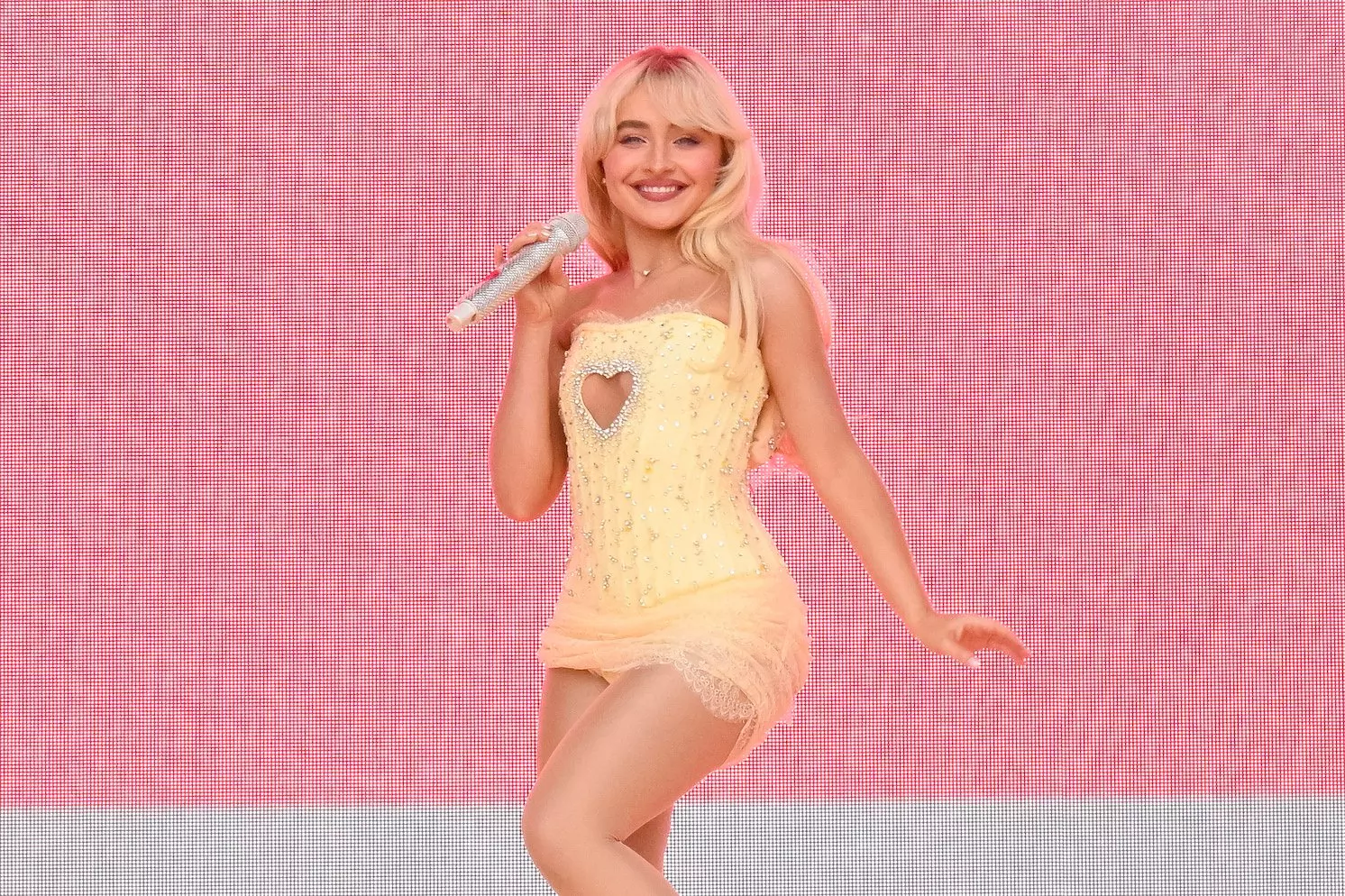
9 New Pride Anthems For 2024: Sabrina Carpenter's "Espresso," Chappell Roan's "Casual" & More
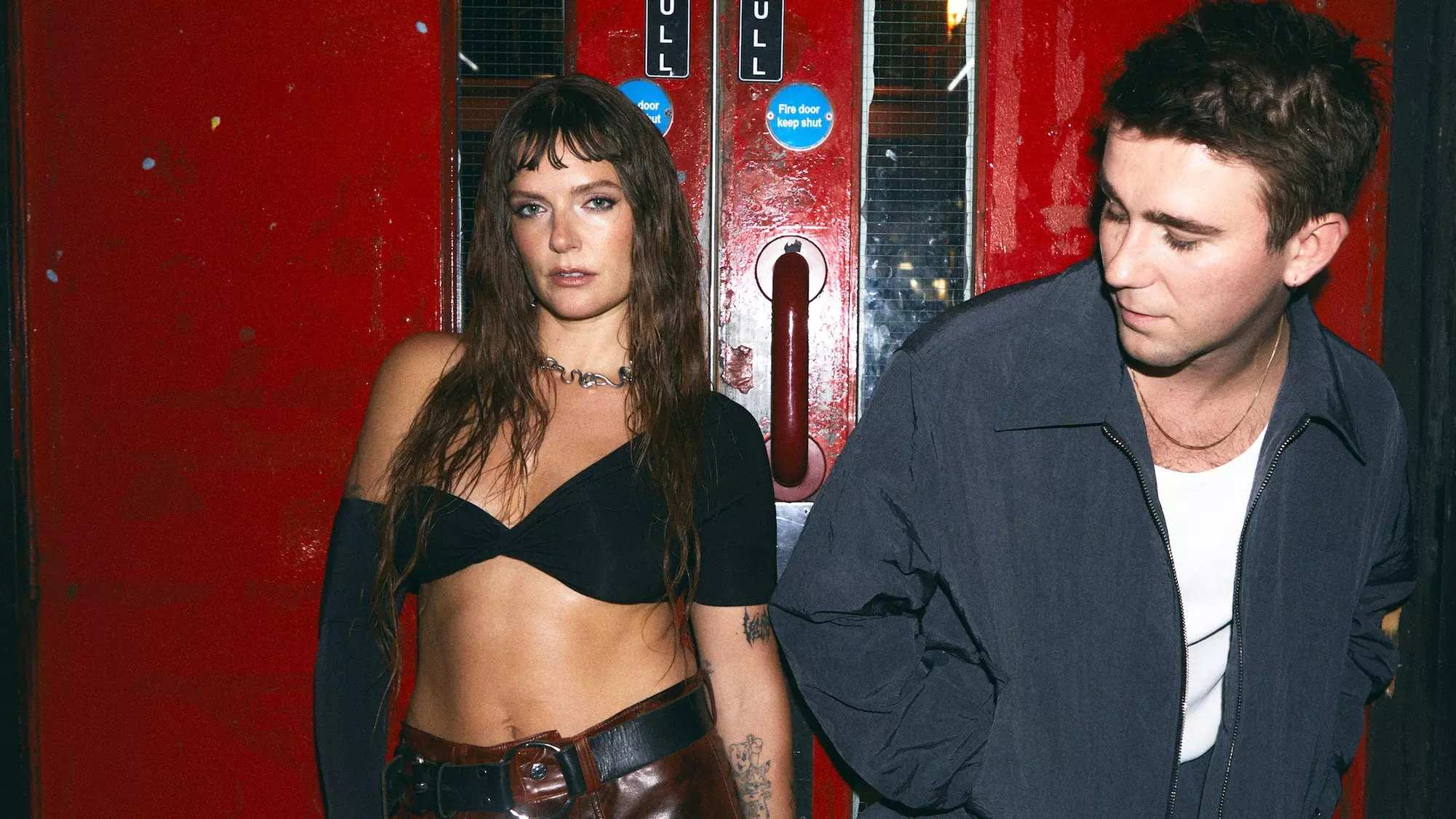
Tove Lo & SG Lewis Crafted Sweaty New EP 'HEAT' In Celebration Of Their Queer Fans
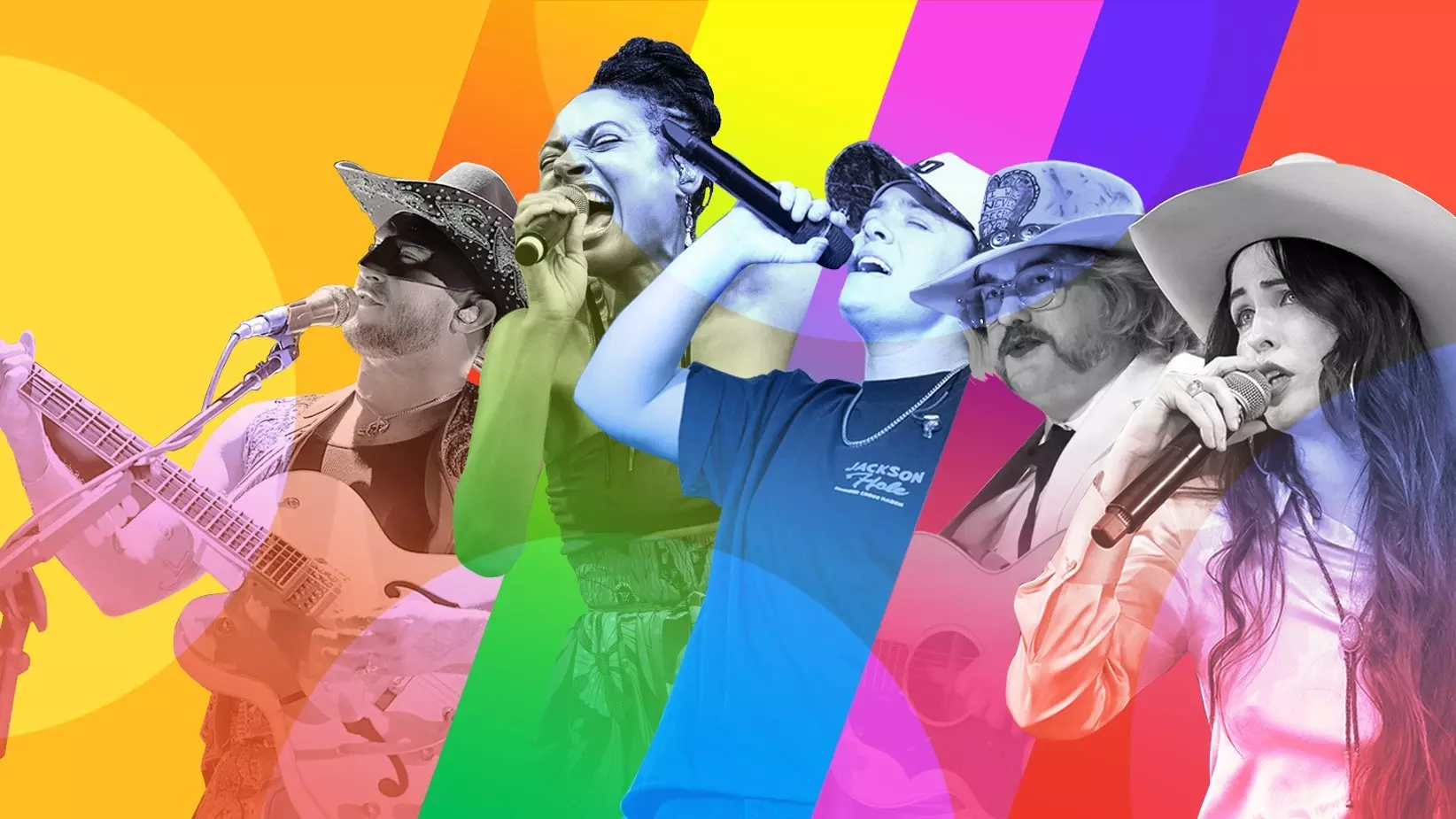
How Queer Country Artists Are Creating Space For Inclusive Stories In The Genre
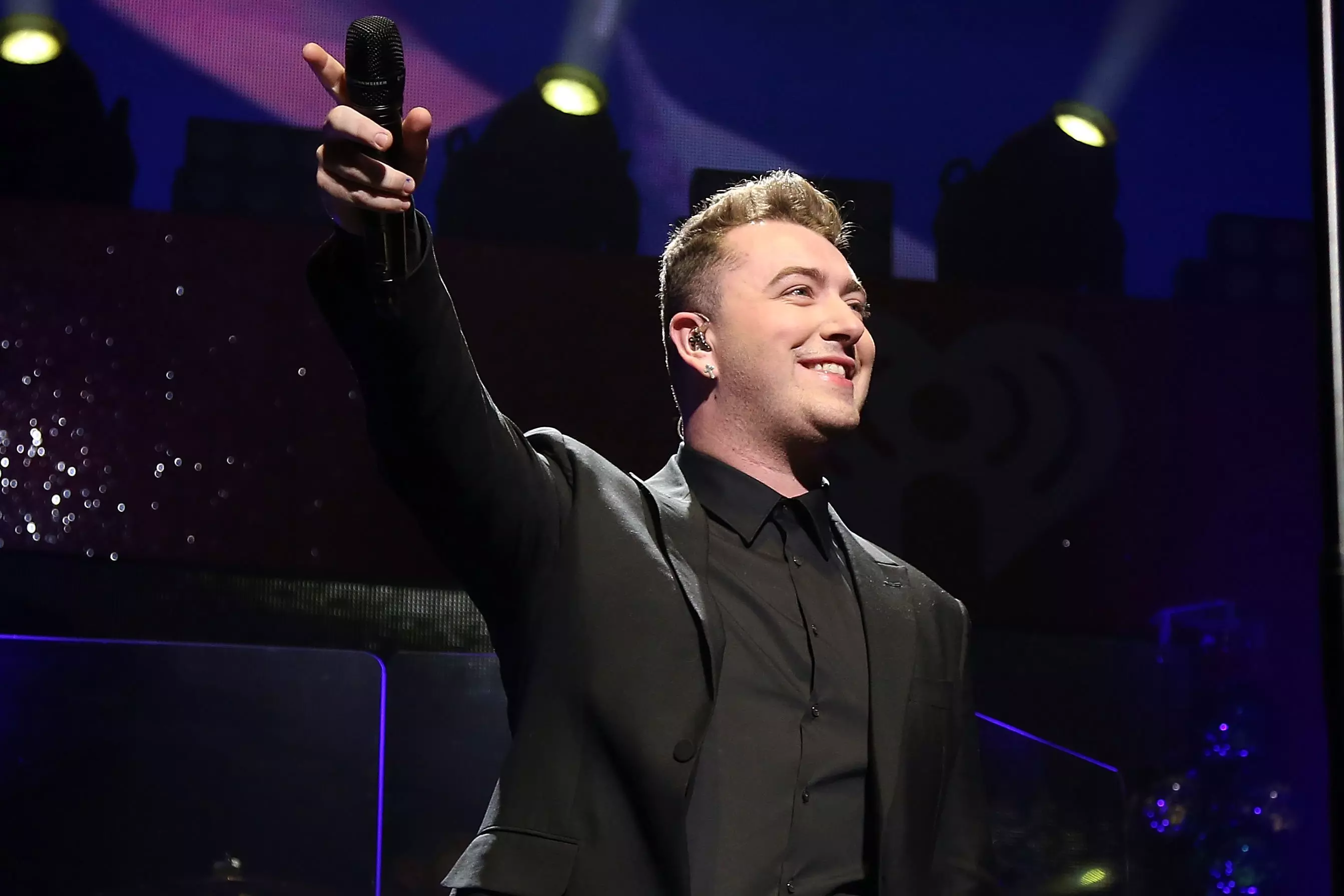
How Sam Smith's 'In The Lonely Hour' Became An LGBTQIA+ Trailblazer
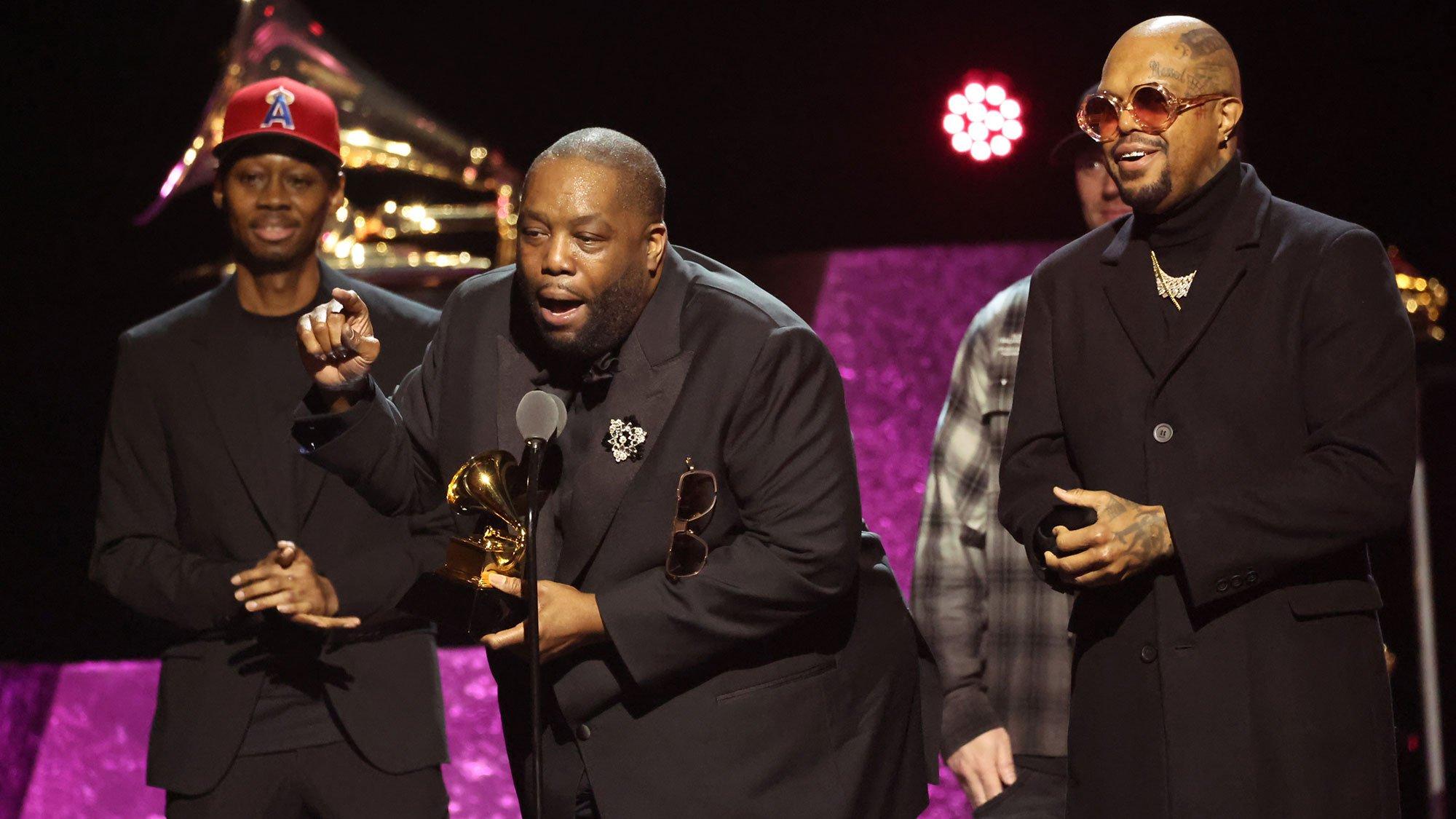
Photo: Amy Sussman/Getty Images
list
10 Acceptance Speeches That Made Us Laugh, Cry, & Smile At The 2024 GRAMMYs
From Taylor Swift's record-shattering Album Of The Year win, to Killer Mike and boygenius category sweeps, these are the emotional GRAMMY winning moments that made up Music's Biggest Night.
Glitz, glamor, and great performances from legendary musicians are only part of what make the GRAMMYs Music’s Biggest Night. It’s also an occasion to honor the music industry’s best and brightest, highlight their greatest achievements from the past year, and watch them soak up the glory.
Some of the night’s biggest moments came when artists accepted their GRAMMY trophies, from Taylor Swift announcing her next album to teary-eyed moments from SZA and Best New Artist Victoria Monét. Here are a few of our favorite acceptance speeches from the 2024 GRAMMYs.
Killer Mike Sweeps With Three GRAMMYs In A Row
Atlanta rapper Killer Mike had already given a moving speech upon winning Best Rap Performance for “Scientists & Engineers,” saying “I want to thank everyone who dares to believe that art can change the world.” But his third and final win, Best Rap Album for Michael, sent him into another dimension: “It’s a sweep! Atlanta, it’s a sweep!”
Tyla Was Shocked To Win Best African Performance
Although her hit song “Water” has dominated the charts, even Tyla was caught off guard by her Best African Music Performance win – the first ever awarded in this category – exclaiming “What the heck?!” The South African star continued "This is crazy, I never thought I’d say I won a GRAMMY at 22 years old."
Boygenius Sweep The Rock Categories
Boygenius already had something to celebrate when Phoebe Bridgers won a GRAMMY for her collab with SZA. They went on to win three categories during the Premiere Ceremony – Best Rock Song, Best Rock Performance, and Best Rock Album – enabling each member of the trio to give a separate speech. “We were all delusional enough as kids to think this might happen someday,” Lucy Dacus said.
Miley Cyrus Was A Class Act
Accepting the prize for Best Pop Solo Performance for “Flowers,” Miley Cyrus took to the stage to strike a pose with presenter Mariah Carey – “This M.C. is gonna stand by this M.C.” — before launching into a story about a boy who tries desperately to catch a butterfly, before nabbing one when they least expect it. “This song ‘Flowers’ is my butterfly,” she concluded.
SZA Runs From Backstage To Accept Award
Changing backstage after her GRAMMYs performance, SZA was caught off guard when “Snooze” won Best R&B Song. She embraced friend and presenter Lizzo before giving an emotional, funny speech. “I can’t believe this is happening, and it feels very fake,” she said. “I love you, I’m not an attractive cryer, have a good evening.”
Taylor Swift Announces New Album
When the pop mega-star took to the stage to accept her lucky 13th overall GRAMMY for Best Pop Vocal Album (Midnights), she decided to use the moment to give her fans the ultimate gift, announcing her 11th studio album, The Tortured Poets Department, will release on April 19. “I want to say thank you by telling you a secret that I've been keeping from you for the past two years,” she said.
Billie Eilish Didn’t Know What To Say
After delivering a lovely performance of her Barbie movie ballad “What Was I Made For?,” Billie Eilish wasn’t exactly at a loss for words when the track won Song of the Year. The words that came out of her mouth were a bit less than rehearsed, however: “Whoa, whoops, yikes, whoa my goodness! Damn, that’s stupid guys!” she said. “I don’t even know what to say, I’m shocked out of my balls.”
Victoria Monét Delivers Tearful, Eloquent Speech
Through tears of joy, Best New Artist winner Victoria Monét gave a speech worthy of an artist who spent years writing for others before striking out on her own. “This award was a 15-year pursuit,” she said, going on to compare herself to a plant growing in the soil of the music industry. “My roots have been growing underneath ground, unseen, for so long, and I feel like today I’m sprouting, finally above ground.”
Miley Cyrus Makes An Even Wilder Record of the Year Speech
Cyrus returned to the stage twice after her first GRAMMY win, first to perform her award-winning song, and then once more to accept a second golden gramophone for Record of the Year. “This award is amazing, but I really hope it doesn’t change anything, because my life was beautiful yesterday,” she said. Then she ended the speech by saying “I don’t think I’ve forgotten anyone, but I might’ve forgotten underwear!”
Taylor Swift’s Record-Shattering Album of the Year
Lightning struck twice for Taylor Swift, as the evening ended with her taking home a record-breaking fourth GRAMMY for Album of the Year (Midnights), more than any other artist in GRAMMY history. Flanked by producer Jack Antonoff and friend and collaborator Lana Del Rey, she gave a speech that highlighted her passion for music-making, saying “For me the award is the work. All I wanna do is keep being able to do this. I love it so much, it makes me so happy." As happy as Swift was, her fans probably left even happier.
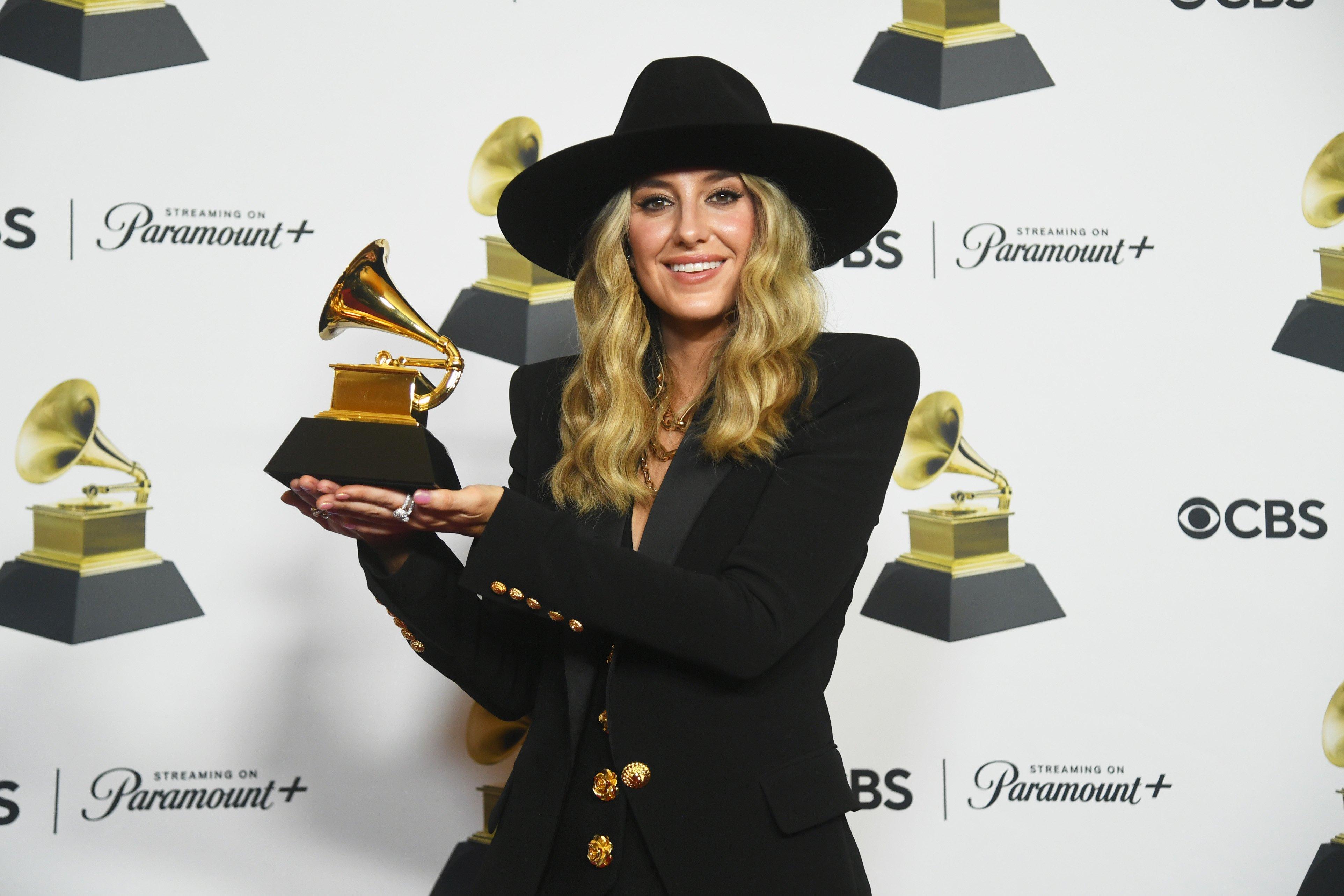
Photo: Alberto E. Rodriguez/Getty Images for The Recording Academy
list
Big First Wins At The 2024 GRAMMYs: Karol G, Lainey Wilson, Victoria Monét & More
The 2024 GRAMMYs were momentous in a myriad of ways, including major firsts. Here's a rundown of big first wins by Paramore, Zach Bryan, Tyla and others.
That's a wrap for Music's Biggest Night! The 2024 GRAMMYs were extraordinarily stuffed with incredible moments, from performances to historic wins to unforgettable surprises.
Several of the most memorable moments came from first-time winners. In fact, there were 126 at the 66th GRAMMY Awards, spanning a wide array of talent across genres. From Colombian songstress Karol G to indie rock supergroup boygenius and country singer Brandy Clark, take a look at some of the biggest acts that took home their very first golden gramophones.
Miley Cyrus Celebrated Her First Wins With A Pumped-Up Performance
Miley Cyrus may have taken home the coveted Record Of The Year for "Flowers," but a different Category may have been the biggest achievement. Just before her performance on the GRAMMY stage, Cyrus won her first-ever golden gramophone for Best Pop Solo Performance.
"This award is amazing, but I really hope it doesn't change anything, because my life was beautiful yesterday," Cyrus said while accepting her first award.
"Flowers" is featured on Cyrus' 2023 album Endless Summer Vacation. "Flowers" was also nominated for GRAMMYs for Song Of The Year.
Karol G's First GRAMMYs Resulted In Her First GRAMMY
Karol G has had a meteoric rise over the past several years, and that continued unabated at Music's Biggest Night.
At the 2024 GRAMMYs Premiere Ceremony, Karol G won the GRAMMY for Best Música Urbana Album, for her 2023 LP Mañana Será Bonito. (She'd previously been nominated at the 2022 GRAMMYs, for the same category, for KG0516.
"Hello everybody, my name is Karol G. I am from Medellín, Colombia. This is my first time at the GRAMMYs, and this is my first time holding my own GRAMMY," she said, utterly concisely.
Victoria Monét Completed A Lifelong Goal…
Victoria Monét won big at the GRAMMYs, including taking home the award for Best New Artist. The singer also took home golden gramophones for Best R&B Album and Best Engineered Album, Non-Classical for Jaguar II.
Monét has been nominated for 10 GRAMMYs over her career as both a solo act and songwriter. When accepting the GRAMMY Award for Best New Artist, Monét compared herself to a plant growing from soil.
"My roots have been growing underneath ground, unseen, for so long, and I feel like today I'm sprouting, finally above ground," she said.
…And So Did Coco Jones
Monét’s fellow R&B nominee — and one-time collaborator — Coco Jones also turned a nearly 15-year journey into GRAMMY success, winning Best R&B Performance for her song "ICU."
Tyla, Me'shell NdegeOcello & Kylie Minogue Won In First-Time Categories
At the 2024 GRAMMYs, there were three new Categories — which meant three inaugural winners. South African singer/songwriter Tyla took home her first GRAMMY with her win for Best African Music Performance for her smash hit "Water," while Me'shell NdegeOcello and Kylie Minogue notched their second wins each, in the new Best Alternative Jazz Album and Best Pop Dance Recording Categories, respectively.
After 16 Years, Paramore Got GRAMMY Gold
Myspace-era alt wizards Paramore enjoyed a stunning resurgence with their 2023 album This Is Why. They'd been nominated in past ceremonies — their first nominations coming in 2008 — but at the 2024 GRAMMYs, they nabbed the trophy for the prestigious Best Rock Album Category. And with their first win, they made GRAMMY history: Paramore is the first female-fronted rock band to win Best Rock Album.
Lainey Wilson Continued A Massive Year With A GRAMMY
Much like Tyla, country star Lainey Wilson nailed it on the first try — as far as the Recording Academy goes. She was nominated twice at the 2024 GRAMMYs, and took home a golden gramophone for Best Country Album, for Bell Bottom Country.
Clearly, the phenomenon of a first-time GRAMMY nominee taking it home transcends genres and continents.
Second Time Was A Charm For Zach Bryan
Country great Zach Bryan's been nominated before — at the 2023 GRAMMYs, for Best Country Solo Performance, for "Something in the Orange."
This time, he brought home the golden gramophone for Best Country Duo/Group Performance, for "I Remember Everything." Bryan was also nominated for Best Country Album (Zach Bryan) and Best Country Song, also for "I Remember Everything."
First-Time Nominees Boygenius Won Three Times
Women dominated the 2024 GRAMMYs, which certainly applies to boygenius — who consist of three women, and cleaned up at the ceremony. And, they too were first-time nominees
Boygenius took home three GRAMMYs revolving around 2023's the record, including Best Alternative Music Album, Best Rock Song and Best Rock Performance — both for the stirring, gender-flipped "Not Strong Enough."
Peso Pluma Went From First-Time Nominee To First-Time Winner
Música Mexicana, stand up! Upstart Peso Pluma took home the GRAMMY for Best Música Mexicana Album (Including Tejano), for his tremendous album GÉNESIS.
As the status of Mexico on the global stage continues to swell, take Pluma's win as a sign to keep your ear to the ground.
Brandy Clark Left A Winner
Roots-heavy singer Brandy Clark's been nominated for 17 GRAMMYs over the years, but never gave up.
At the 2024 GRAMMYs, she won for Best Americana Performance for "Dear Insecurity" — and she played a corker of a version at the Premiere Ceremony with the string duo SistaStrings.
Fred again.. Proved To Be Dance Music’s Latest Hero
2022 saw Fred again.. rise as one of dance music's most promising new stars with the release of his compilation album, USB, and his third studio album, Actual Life 3 — and both helped him win his first pair of GRAMMYs in 2024. USB's "Rumble" (a collaboration with Skrillex and Four Tet) scored Best Dance/Electronic Recording, and Actual Life 3 took home Best Dance/Electronic Music Album.
Taylor Swift & Kacey Musgraves Celebrated Historic Firsts
While winning a GRAMMY was nothing new to 2024 winners Taylor Swift and Kacey Musgraves, they both had feats that marked big firsts in GRAMMY history. Swift became the first artist to be awarded Album Of The Year four times with her win for Midnights, while Musgraves' win for Best Country Duo/Group Performance for her Zach Bryan collaboration "I Remember Everything" made her the first artist to win in all four Country Field Categories.
Keep checking GRAMMY.com for stories about the 2024 GRAMMYs — and the Recording Academy thanks you for tuning into Music's Biggest Night! If you missed it, stream it on Paramount+ for maximum musical glory.
2024 GRAMMY Nominations: See The Full Winners & Nominees List
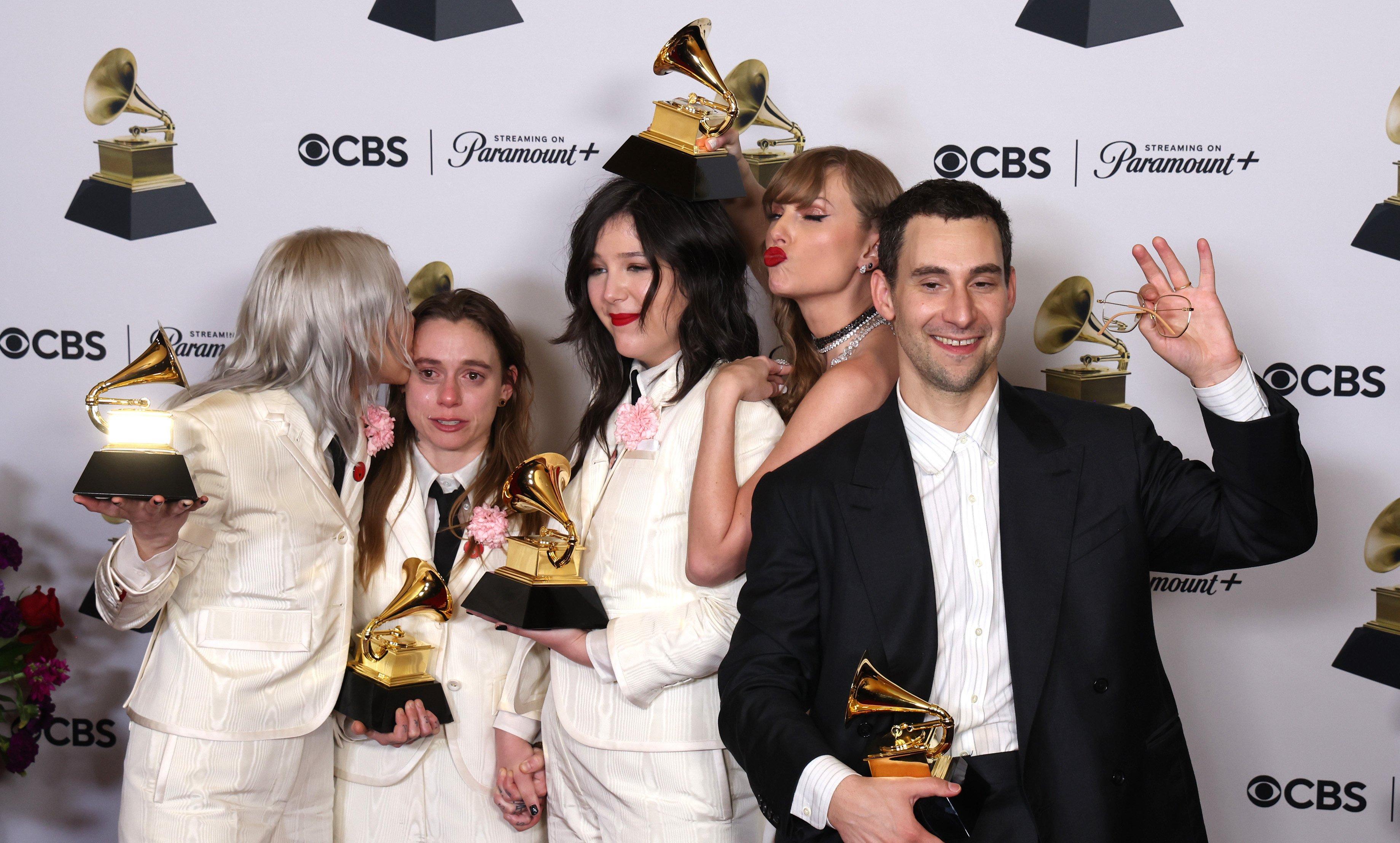
Photo: Kevin Mazur/Getty Images for The Recording Academy
news
10 Must-See Moments From The 2024 GRAMMYs: Taylor Swift Makes History, Billy Joel & Tracy Chapman Return, Boygenius Manifest Childhood Dreams
The 66th Annual GRAMMY Awards wrote another monumental chapter in music history with returns from legends like Celine Dion and wins by a promising new generation of artists like Victoria Monét.
Just like that, another GRAMMYs has come and gone — but the 2024 telecast brought many moments that will be immortalized in pop culture history.
It was the evening of legends, as Billy Joel and Tracy Chapman returned to the stage for the first time in decades and Joni Mitchell made her debut with a performance of her 1966 classic, "Both Sides, Now." Stevie Wonder and Celine Dion honored greats, both those we've lost and those who are dominating today. And Meryl Streep had two memorable moments at the show, making a fashionably late entrance and getting a hilarious GRAMMY lesson from Mark Ronson.
But it was the younger generation of artists who ultimately dominated the show. Boygenius — the supergroup of Phoebe Bridgers, Lucy Dacus, and Julien Baker — won numerous awards in the Rock, Metal & Alternative Music Field. Billie Eilish and SZA scooped up a couple more golden gramophones, respectively, and Best New Artist winner Victoria Monét celebrated three wins in total, also winning Best R&B Album and Best Engineered Album, Non-Classical.
Taylor Swift built on the momentum of her colossal year with more GRAMMY records and an unexpected announcement of her next studio album.
Check out the full list of winners here, and take a look at our top 10 highlights from another show-stopping installment of the GRAMMYs below.
Boygenius Run To Accept Their First GRAMMY Award
Boygenius won the first trophy of their careers during the Premiere Ceremony, and they were so ecstatic they sprinted through the crowds to get to the stage.
"Oh my God, I want to throw up," Lucy Dacus said as the group accepted their Best Rock Performance trophy for "Not Strong Enough."
Even though the trio was over the moon, they weren't entirely shocked by their win: "We were delusional enough as kids to think this would happen to us one day," she continued. Phoebe Bridgers would sing at a local Guitar Center "in hopes of getting discovered," while Julien Baker dreamed of performing in stadiums as she played in multiple bands, and Dacus has been perfecting her acceptance speech for years.
Their hard work was manifested three times over, as the trio also won Best Rock Song for "Not Strong Enough" and Best Alternative Music Album for the record.
Killer Mike Makes A Clean Sweep
Killer Mike had the largest GRAMMY night of his career, winning all three of the Rap Categories for which he was nominated: Best Rap Performance and Best Rap Song for "SCIENTISTS & ENGINEERS," and Best Rap Album for MICHAEL.
"I'm from the Southeast, like DJ Paul, and I'm a Black man in America. As a kid, I had a dream to become a part of music, and that 9-year-old is very excited right now," he cheered. "I want to thank everyone who dares to believe art can change the world."
Minutes after his sweep, the LAPD detained the Run the Jewels rapper. However, he was released and still able to celebrate his achievements, Killer Mike's lawyer told Variety.
Miley Cyrus Finally Receives Her "Flowers"
Miley Cyrus entered the GRAMMYs with six nominations for her eighth studio album, Endless Summer Vacation. After she won Best Pop Solo Performance for "Flowers," she delivered a jubilant performance in celebration. "Started to cry, but then remembered, I just won my first GRAMMY!" she exclaimed at the song's bridge, throwing her hands in the air and joyfully jumping around the stage.
Cyrus' excitement brought a tangible energy to the performance, making for one of the night's most dynamic — and apparently one of Oprah Winfrey's favorites, as the camera caught the mogul dancing and singing along.
"Flowers" earned Cyrus a second GRAMMY later in the night, when the No. 1 hit was awarded Record Of The Year.
Tracy Chapman Makes A Rare Appearance
Luke Combs breathed a second life into Tracy Chapman's "Fast Car" when he released a cover of the track in April 2023. He quickly climbed to the top of the Billboard charts and received a nomination for Best Country Solo Performance at this year's show. Of course, it called for a special celebration — one that was meaningful for both Combs and GRAMMYs viewers.
Chapman joined the country star on stage for her first televised performance since 2015, trading off verses with Combs as he adoringly mouthed the words. The duet also marked Chapman's first appearance on the GRAMMY stage in 20 years, as she last performed "Give Me One Reason" at the 2004 GRAMMYs. (It also marked her second time singing "Fast Car" on the GRAMMYs stage; she performed it in 1989, the same year the song won Best Pop Vocal Performance, Female and Chapman took home three awards total, including Best New Artist.)
Naturally, Chapman's return earned a standing ovation from the crowd. As Combs fittingly put it in an Instagram post thanking the Recording Academy for the opportunity, it was a "truly remarkable moment."
Read More: 2024 GRAMMY Nominations: See The Full Winners & Nominees List
Joni Mitchell Takes The GRAMMY Stage For The First Time At 80
In one of the most emotional parts of the night, Joni Mitchell performed on the GRAMMYs stage for the first time in her nearly 60-year career.
Accompanied by Brandi Carlile — who referred to Mitchell as "the matriarch of imagination" before the performance — Lucius, SistaStrings, Allison Russell, Blake Mills, and Jacob Collier, Mitchell sang a touching rendition of "Both Sides Now."
"Joni is one of the most influential and emotionally generous creators in human history," Carlile added in her introduction. "Joni just turned 80, my friends, but we all know she's timeless!"
Mitchell also won her 10th golden gramophone at the 2024 GRAMMYs, as her live album Joni Mitchell at Newport was awarded Best Folk Album at the Premiere Ceremony.
Stevie Wonder Salutes The Late Tony Bennett, Duetted By His Hologram
Another heartfelt moment came during this year's In Memoriam segment, when Stevie Wonder memorialized his friend, Tony Bennett, who passed away from Alzheimer's disease in 2023.
"Tony, I'm going to miss you forever. I love you always, and God bless that He allowed us to have you in this time and space in our lives," Wonder proclaimed. Thanks to a hologram of Bennett, the two singers could duet "For Once in My Life" one last time.
This year's tribute also saw Annie Lennox covering Sinéad O'Connor's "Nothing Compares 2 U," Jon Batiste's medley of Bill Withers' hits, and Fantasia's reimagining of Tina Turner's "Proud Mary."
Meryl Streep Gets Educated On Album Vs. Record And Single
Mark Ronson presents with his mother-in-law Meryl Streep at the 2024 #Grammys pic.twitter.com/mueXlmJarX
— The Hollywood Reporter (@THR) February 5, 2024
Meryl Streep joined Mark Ronson — who happens to be her son-in-law — to announce the Record Of The Year winner, which sparked a funny interaction between the two when Streep thought she was announcing Album Of The Year.
"A record is an album!" Streep confidently declared, only for Ronson to give a quick 101 on the difference between Record, Song, and Album Of The Year.
"It's a really important award, and it's an award that recognizes everything that goes into making a great record — the producers, the recording engineer, and the artist, and all their contributions," Ronson explained of Record Of The Year.
"It's the Everything Award! It's the best," Streep smiled.
Celine Dion Surprises The World With A Special Cameo
Before the GRAMMYs commenced, producer Ben Winston told viewers they would be in for a treat because of a surprise presenter for the final award of the night, Album Of The Year. "They are an absolute global icon. I think jaws will drop to the floor. People will be on their feet," he shared.
It was none other than Celine Dion, who has largely been out of the limelight after her stiff person syndrome diagnosis.
"When I say that I'm happy to be here, I really mean it with my heart," Dion said. "It gives me great joy to present a GRAMMY award that two legends, Diana Ross and Sting, presented to me 27 years ago."
Dion is referring to her Album Of The Year win at the 39th GRAMMY Awards in 1997, when her smash LP Falling Into You won the honor.
Taylor Swift Breaks The Record For Most AOTY Wins
It was a historic night for Taylor Swift in more ways than one.
She began the evening by winning her 13th GRAMMY for Best Pop Vocal Album for Midnights. To commemorate the milestone (13 is her lucky number), Swift announced her 11th studio album, The Tortured Poets Department, arriving on April 19.
She ended the evening with a coveted fourth Album Of The Year win, which made Swift the artist with the most AOTY nods in GRAMMY history.
"I would love to tell you this is the best moment of my life, but I feel this happy when I finish a song or crack the code to a bridge that I love or when I'm shot listing a music video or when I'm rehearsing with my dancers or my band or getting ready to go to Tokyo to play a show," she said. "The award is the work. All I want to do is keep being able to do this."
Billy Joel Serves Double GRAMMY Duty
After Swift's momentous win, Billy Joel ended the ceremony with a feel-good performance of his 1980 single, "You May Be Right." Along with being a rousing show closer, it was also his second performance of the night; Joel performed his newest offering, "Turn the Lights Back On," before Album Of The Year was announced.
Joel's performances included three firsts: It was the debut live rendition of "Turn the Lights Back On," his first release since 2007, and the performances marked his first time playing on the GRAMMYs stage in more than two decades. It was a fitting finale for a history-making show, one that beautifully celebrated icons of the past, present and future.
